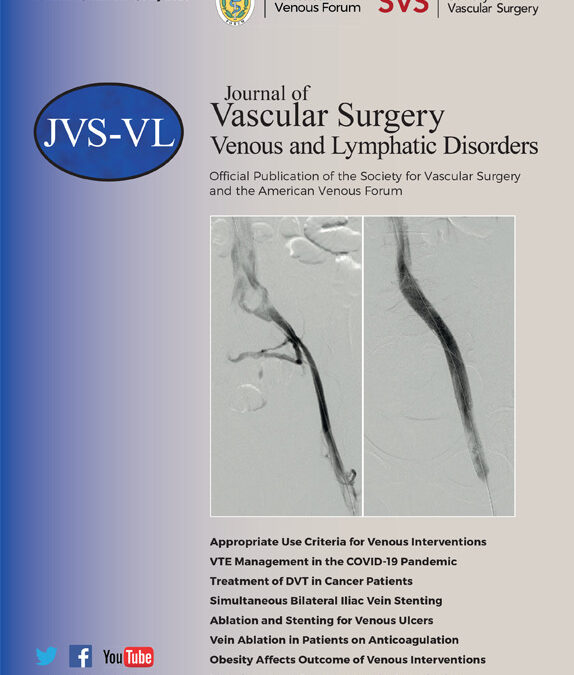What does that mean for my veins?
The most commonly used method for treating varicose veins of the leg is called “ablation”, which is a technique by which a small plastic tube (catheter) is inserted into the abnormal vein under local anesthesia and with ultrasound guidance, and generally performed in the physician’s office. The method works by delivering heat inside the vein, from the catheter, and this permanently damages the abnormal vein causing it to close.
Ablation procedures are highly effective and very safe, but what if the patient is on blood-thinner medications (anticoagulation) as is often used for some heart conditions? Will the abnormal vein still close? Will there be any bleeding complications?
When more invasive surgeries are needed for other conditions such as major orthopedic or general surgery, the blood thinners are stopped for a few days to reduce the risks of bleeding complications that could otherwise occur from the surgery. But this results in a slight risk of blood clotting problems while the person is not taking the blood thinners. So the question addressed in this study is “must blood thinner medications be stopped to safely perform varicose vein ablation procedures?”
The short answer is “no, the blood thinners can continue and do not need to be stopped for an ablation.” The doctors conducting this research study compared outcomes of 65 patients treated with ablation procedures while still receiving blood thinners with another group of 89 patients who were not receiving blood thinners.
The study looked at two main questions – (1) Was there any difference in the long-term effectiveness of the ablation procedure as measured by closure of the abnormal vein as tested by ultrasound scanning of the treated leg, and (2) was there any difference in bleeding or clotting complications between the two group?
Intuitively, one might wonder whether the treated veins in patients who took blood thinners failed to close. In other words, did the blood thinners “protect” the vein and keep it from closing as well as in patients who were not taking blood thinners? As it turned out, the ablation worked as well in both groups of patients with an over 90% long-term vein closure rate.
The other questions – were there any differences in bleeding or blood clotting complications between the two groups – also showed no differences. Again, intuitively, one might have expected more bleeding complications in patients who were on blood thinners, and more blood clot complications in patients who were not taking any blood thinners. Thankfully, this turned out not to be the case. The ablation procedures were effective and safe in both groups, whether or not the patients were taking blood thinners.
I hope this information has been helpful and informative! These vein research reviews – “What does this mean for myveins?” will continue as a regular feature of our blog.
Mark R. Jackson, M.D.
Board Certified Vascular Surgeon
* Original article “Radiofrequency and laser vein ablation for patients receiving warfarin anticoagulation is safe, effective, and durable” published on January 25, 2020 by authors Gregory G. Westin, MD, MAS; Neal S. Cayne, MD; Victoria Lee, MD; Todd L. Berland, MD; Thomas S. Maldonado, MD; Glenn R. Jacobowitz, MD.
Original citation: Journal of Vascular Surgery: Venous and Lymphatic Disorders. Volume 8, Issue 4, July 2020, Pages 610-616


